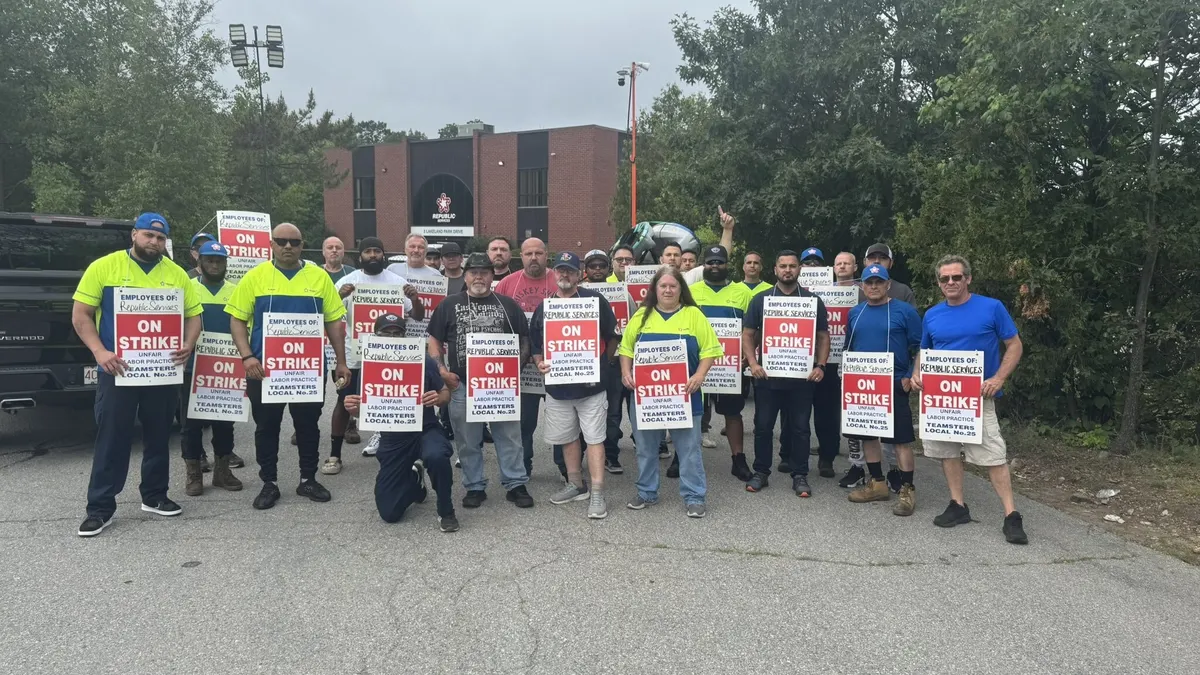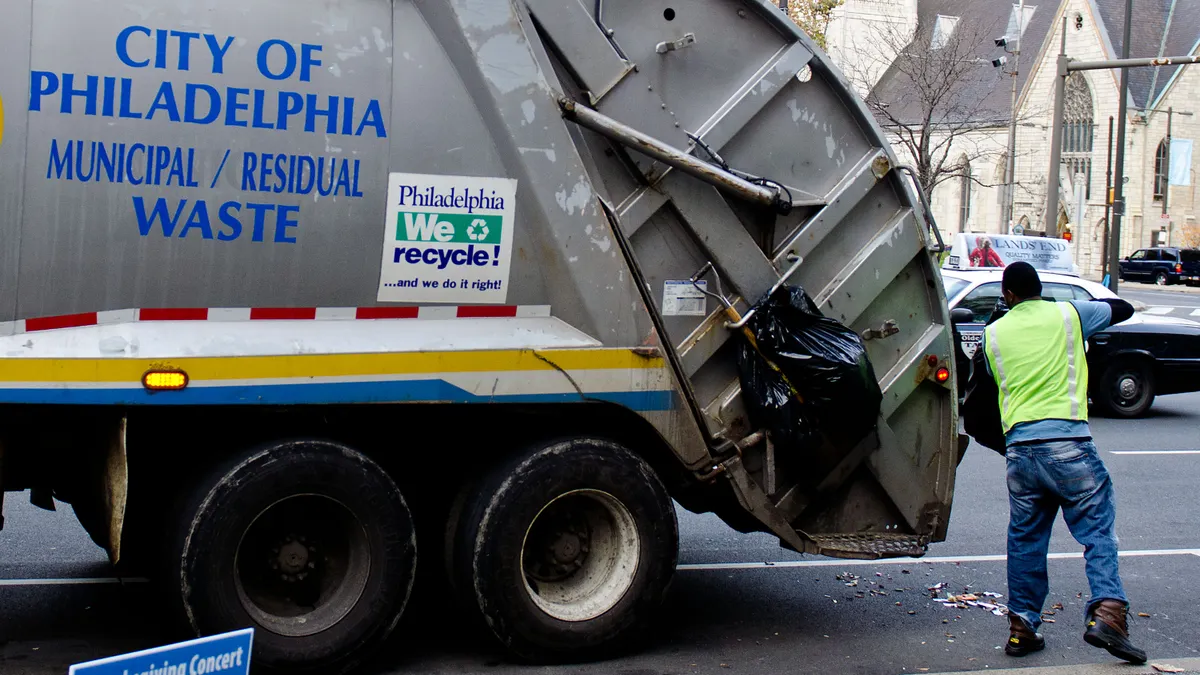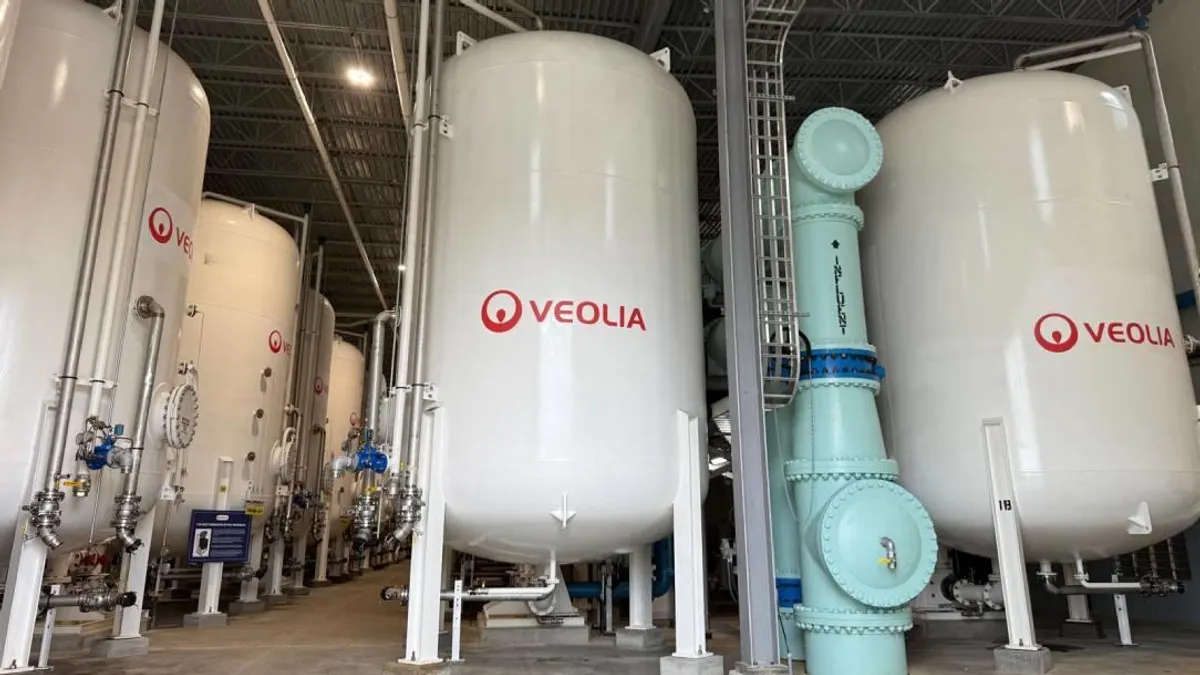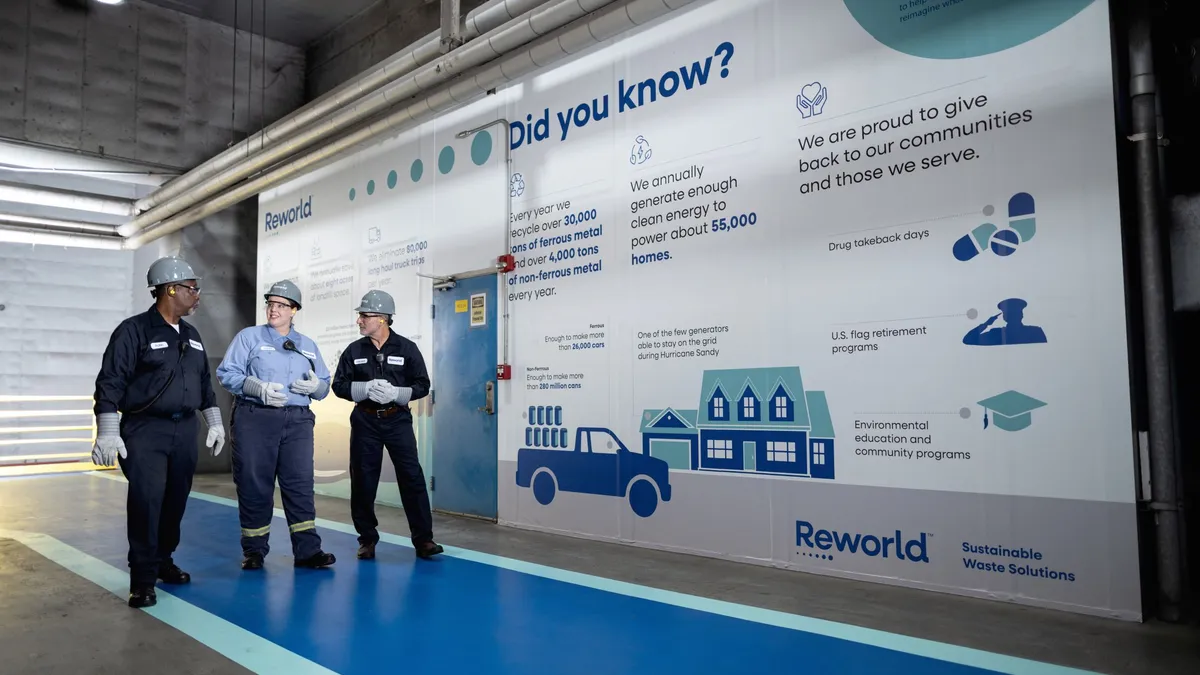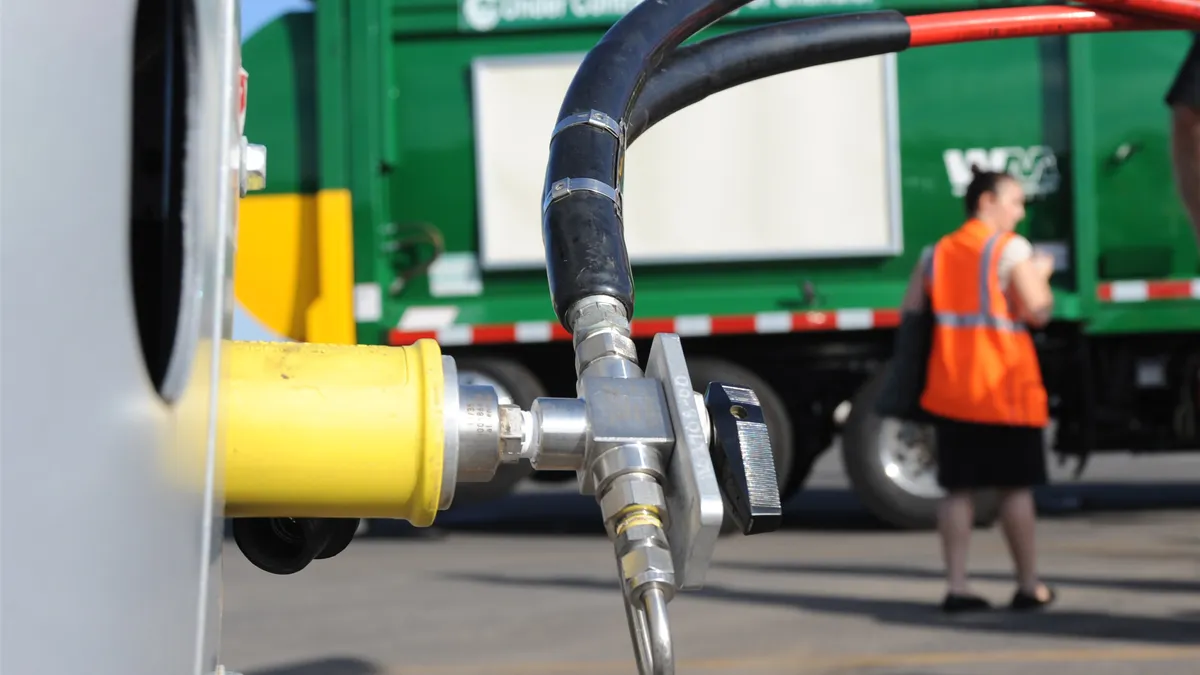Numerous large U.S. cities have opportunities to expand and improve their recycling programs, despite ongoing turbulence in the sector, according to a new report from The Recycling Partnership (TRP).
The national nonprofit's broader report on the future of U.S. recycling argues that investment in these areas would help yield "some of the highest, single-city jumps in material recovery," reaching 1.62 million total households. Changes to the level of access, or type of collection systems, are singled out as most promising in 12 cities, ranging in scale from Baltimore, Maryland to Syracuse, New York. The 69-page report also scrutinizes trends among cities already making alterations, in addition to looking at "recycling deserts" in regions like west and north Texas.
While TRP told Waste Dive the examples are "illustrative" and meant to speak to larger opportunities, many of the municipalities singled out have also been approached by the nonprofit for potential grant funding.
"[There are] clear funding gaps, staffing gaps, contractual timing. We're always dealing with that, trying to identify ways to help cities improve, and get them what they need," said Cody Marshall, TRP's chief community strategy officer.
As the recycling sector has struggled to adjust to recent market fluctuations, many municipalities have altered their programs and more than 70 have suspended them entirely at various stages. Despite that downward turn, industry proponents argue a combination of factors — ranging from education and outreach to infrastructure improvement — could bolster curbside recycling.
TRP has long argued in favor of changes to municipal programs, including shifting from bin-based systems to single-stream carts. Both the organization and many large service providers maintain these carts allow for more efficient collection, safer working conditions, broader participation, and higher capture rates. The nonprofit's report recommends expanding or switching to cart-based collection in the following cities, ranging from largest to smallest by relevant population:
| City | State | Single Family Households |
|---|---|---|
| Baltimore | MD | 210,000 |
| Indianapolis | IN | 267,000 |
| Detroit | MI | 207,000 |
| Milwaukee | WI | 181,133 |
| Kansas City | MO | 148,500 |
| Omaha | NE | 145,000 |
| Nashville | TN | 139,000 |
| Pittsburgh | PA | 115,630 |
| Birmingham | AL | 61,369 |
| Mobile | AL | 60,100 |
| Jackson | MS | 50,300 |
| Syracuse | NY | 40,000 |
Marshall pointed to a number of other cities as "gold standard" examples — such as Tampa, Florida and Minneapolis, Minnesota — because they offer carts for every home under universal curbside programs. TRP sees the cities singled out for expansion as candidates to move toward that norm, albeit through a range of approaches.
FCC Environmental, for example, won a collection contract with Omaha in 2019 that already included a switch to cart-based collection by next year. TRP has offered grant funding to that city, along with Baltimore, Milwaukee, Pittsburgh, Nashville, and Detroit. The latter three cities have also received additional funding from a state recycling grant program.
Others cities noted in the report have been in discussions with TRP, but have not moved to the stage of grant offers. Jackson, which became the largest city in the country to suspend its curbside program last year, is still assessing plans, while Indianapolis, the biggest city nationally without a full curbside program, is working on a similarly uncertain timeframe, according to TRP.
"We talk with [Indianapolis] a lot," said Scott Mouw, TRP's senior director of research and strategy. Mouw told Waste Dive that Indianapolis struggles with the same factors holding other cities back from expansion, including conflicting priorities and a dearth of staffing, funding, and infrastructure. "We're waiting for... a state of readiness on the part of the city. We're standing right here, ready to engage with them."
Even once cities begin their efforts, the pace of local program change differs, per TRP's modeling. While the organization estimates cities like Milwaukee and Nashville could implement changes in under three years, the projection for Indianapolis is closer to five years. TRP attributed that gap to issues like exiting contract terms and the need for substantial infrastructure investments.
Separate from the 12 cities singled out for improvement, the report also identifies highly populated regions with minimal recycling of any kind. The Texas municipalities named in the report — Midland, Odessa, Lubbock, Abilene and Amarillo — all lack city curbside programs and have limited access to drop-off locations. San Angelo, another city listed, offers limited curbside service through a contract with Republic Services.
Jordan Fengel, executive director for the State of Texas Alliance for Recycling (STAR), told Waste Dive large gaps in recycling access are a persistent problem.
"With Texas being such a large state, there are recycling deserts that unfortunately leave communities with few options to participate in recycling," said Fengel.
He also indicated Texas municipalities are similarly interested in addressing gaps. "Overall, recycling in Texas is growing as is the support for domestic sustainable material management," Fengel said, noting that demand exists from more than 125 companies in Texas who utilize recycled materials for their businesses.
Mouw and Marshall of TRP acknowledged that efforts to bridge gaps in the state would be particularly complex.
"We know in north and west Texas, it wouldn't just be a matter of putting carts on the street," said Mouw. "This area of the country might need a bit of additional work on things...to either connect them to existing MRFs in other areas, or work to build some MRF capacity."
Tackling recycling deserts ultimately poses a more daunting challenge than expanding access in major cities already equipped with some infrastructure. But TRP's report emphasizes the economic benefits of such a focus, along with the environmental perks.
And the landscape is already changing, at least in Texas. Closed Loop Partners (CLP) acquired a majority stake in Texas-based recycler Balcones Resources last year, a move some have seen as potentially beneficial for expanding circular economy efforts in the state. A spokesperson for CLP declined to comment on the TRP report, but the organization has expressed ambition about expansion in the past. CEO Ron Gonen previously told Waste Dive in October that his goal was to see "Texas and the region have comprehensive MRF infrastructure."






